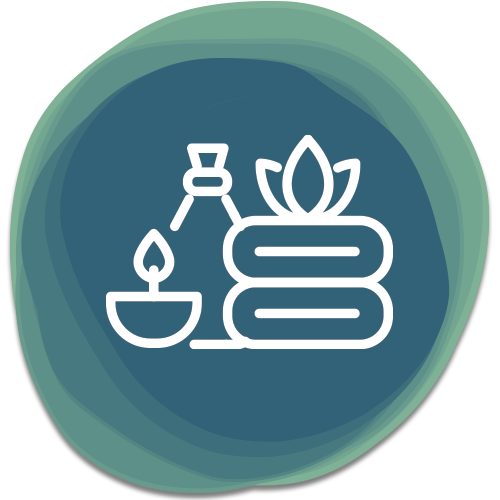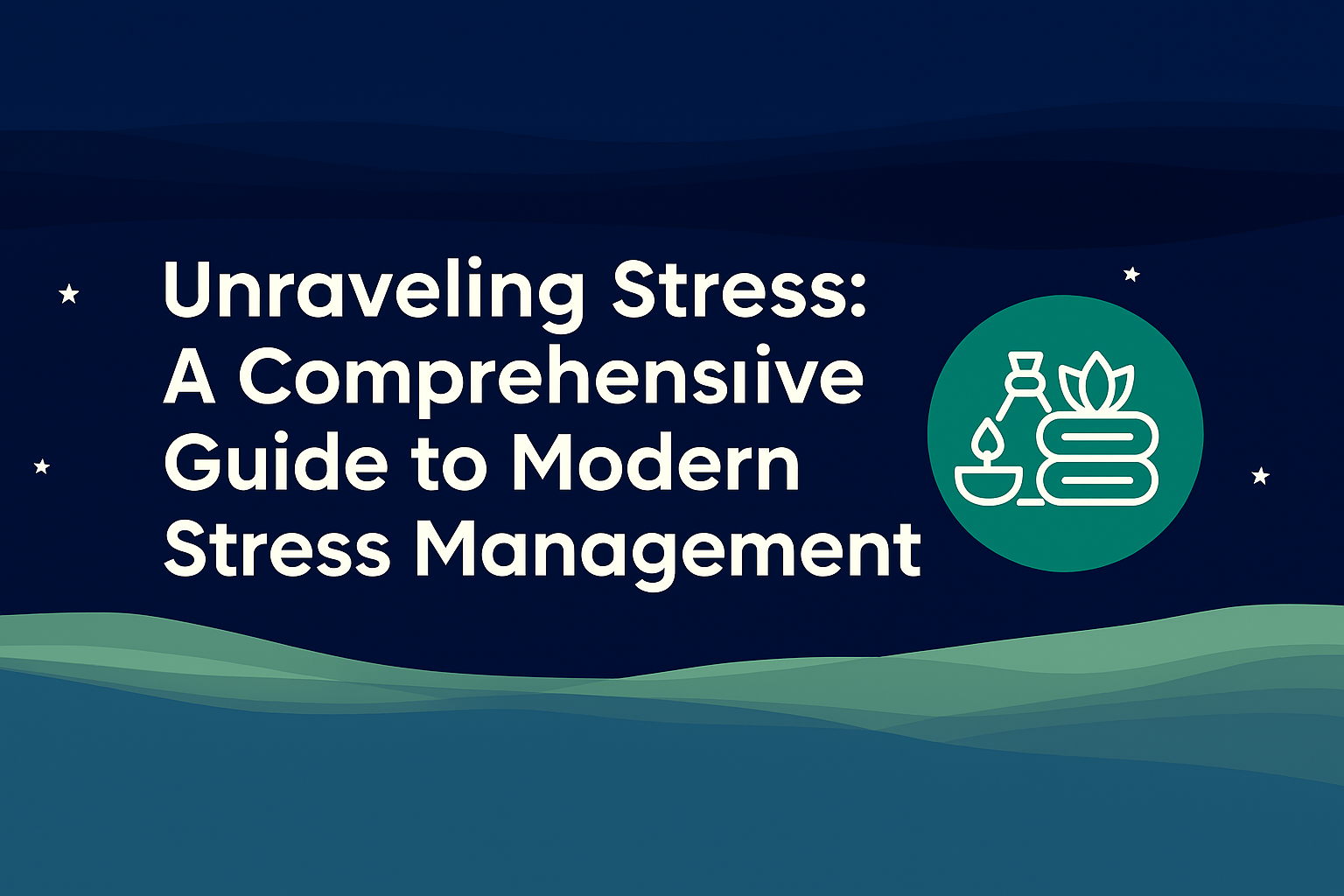
In today’s fast-paced world, stress has become an almost universal experience. From work deadlines to family responsibilities, financial concerns to health worries, the sources of stress seem endless. As we recognize Stress Awareness Month this April, it’s the perfect time to explore how stress affects us and, more importantly, how we can effectively manage it.
The Modern Epidemic of Stress
Stress isn’t just an uncomfortable feeling—it’s a physiological response with real consequences for our mental and physical health. According to the American Psychological Association, chronic stress contributes to the six leading causes of death: heart disease, cancer, lung ailments, accidents, cirrhosis of the liver, and suicide[^1].
Despite these sobering statistics, there’s good news: stress management is a skill that can be learned and improved. By understanding our stress responses and implementing effective coping strategies, we can transform our relationship with stress and enhance our overall wellbeing.
Understanding Your Stress Response
Our bodies respond to stress in the same way our ancestors’ bodies did—by preparing us for “fight or flight.” This response evolved to help us survive immediate physical threats, but in today’s world, our stressors are often psychological and ongoing[^2].
Types of Stress
Acute stress is the most common form. It comes from recent pressures and anticipated challenges in the near future. In small doses, it can actually be beneficial—helping you rise to meet a challenge. However, too much acute stress can be exhausting[^3].
Episodic acute stress affects those who frequently experience acute stress. These are people who seem to live in constant chaos, always rushing, always late, taking on too many responsibilities. This type of stress can lead to persistent tension headaches, migraines, hypertension, and heart disease[^3].
Chronic stress is the grinding stress that wears people down day after day, year after year. It comes from traumatic experiences, childhood trauma, poverty, dysfunctional families, or being trapped in an unhappy marriage or career. Chronic stress can lead to serious health problems and requires active management and often professional help[^4].
Practical Stress Relief Techniques
The good news is that there are many evidence-based techniques to help manage stress effectively. Here are some of the most impactful approaches:
1. Breathing Exercises
Controlled breathing is one of the simplest yet most effective ways to activate your body’s natural relaxation response[^5].
The 4-7-8 Breathing Technique:
- Exhale completely through your mouth
- Inhale quietly through your nose for four counts
- Hold your breath for seven counts
- Exhale completely through your mouth for eight counts
- Repeat the cycle three more times
Box Breathing Method:
- Exhale completely releasing all the air from your lungs
- Inhale through your nose for four counts
- Hold your breath for four counts
- Exhale for four counts
- Hold your breath again for four counts
- Repeat for three or four more rounds, or as needed
Diaphragmatic Breathing:
- Sit or lie in a comfortable position
- Bend your knees and put your feet flat on the floor
- Place one hand on your chest and the other on your stomach, below your ribs
- Breathe in slowly through your nose, feeling your stomach expand
- Exhale slowly through pursed lips
- Focus on the hand on your stomach moving more than the hand on your chest
According to research published in the Journal of Neurophysiology, even just 5 minutes of focused breathing can significantly reduce stress hormones in your bloodstream and create a sense of calm[^6].
2. Mindfulness Practices
Mindfulness involves being fully present in the moment, aware of where you are and what you’re doing, without being overly reactive to what’s going on around you. The American Psychological Association notes that mindfulness-based interventions have shown significant success in reducing symptoms of anxiety and depression[^7].
Meditation for Beginners:
- Start with just five minutes daily
- Focus on your breath going in and out
- When your mind wanders (and it will), gently bring your attention back to your breath
- Use guided meditations from apps like Calm, Headspace, or free resources on YouTube
- Be patient with yourself—meditation is a skill that improves with practice
5-Minute Daily Mindfulness Routines:
- Mindful eating: Pay full attention to the experience of eating one piece of fruit
- Mindful walking: Focus on the sensation of your feet touching the ground
- Mindful listening: Close your eyes and identify all the sounds you can hear
- Body scan: Mentally scan your body from head to toe, noticing sensations without judgment
Mindful Awareness Techniques:
- STOP technique: Stop, Take a breath, Observe (thoughts, feelings, sensations), Proceed
- Use everyday activities (showering, washing dishes) as opportunities to practice mindfulness
- Notice five things you can see, four things you can touch, three things you can hear, two things you can smell, and one thing you can taste
3. Lifestyle Modifications
How we live our daily lives has a profound impact on our stress levels and our ability to cope with stressors.
Sleep Hygiene:
- Maintain a consistent sleep schedule, even on weekends
- Create a restful environment (dark, quiet, comfortable)
- Limit exposure to screens before bedtime
- Avoid caffeine and alcohol close to bedtime
- Aim for 7-9 hours of quality sleep per night
The National Sleep Foundation emphasizes that quality sleep significantly enhances our ability to manage stress, with poor sleep exacerbating stress responses and emotional reactivity[^8].
Nutrition’s Role in Stress Management:
- Limit caffeine, which can trigger the body’s stress response
- Reduce sugar intake, which can cause energy crashes
- Increase intake of omega-3 fatty acids (fish, walnuts, flaxseeds)
- Stay hydrated—even mild dehydration can affect mood
- Include complex carbohydrates to boost serotonin production
- Don’t skip meals, as this can lead to blood sugar fluctuations
According to Harvard Health, certain nutrients play a significant role in regulating our stress response and improving resilience[^9].
Exercise as a Stress Reducer:
- Aim for at least 30 minutes of moderate exercise most days
- Consider activities that combine movement with mindfulness, like yoga or tai chi
- Even short walks can help reduce stress hormones
- Find activities you enjoy—exercise shouldn’t be another source of stress
- Consider outdoor exercise for added benefits from nature exposure
The Mayo Clinic reports that virtually any form of physical activity can act as a stress reliever, helping to increase endorphins and improve mood[^10].
Professional Stress Management
For many of us, work is a significant source of stress. Here are strategies specifically for managing workplace stress:
Setting Boundaries:
- Establish clear work hours and stick to them
- Take regular breaks throughout the workday
- Learn to say no to additional responsibilities when you’re at capacity
- Discuss workload concerns with supervisors proactively
- Create physical or temporal boundaries between work and personal life
Time Management Techniques:
- Prioritize tasks using the Eisenhower Matrix (urgent/important)
- Break large projects into smaller, manageable tasks
- Use the Pomodoro Technique (25 minutes of focused work followed by a 5-minute break)
- Batch similar tasks together to reduce context-switching
- Schedule buffer time between meetings and tasks
Workplace Stress Strategies:
- Identify and reduce workplace stressors where possible
- Build supportive relationships with colleagues
- Personalize your workspace with items that bring calm
- Use vacation time fully and disconnect while away
- Consider flexible work arrangements if available
The National Institute for Occupational Safety and Health emphasizes that workplace stress prevention programs that address both individual and organizational factors have shown the most success[^11].
When to Seek Professional Help
While self-help strategies are effective for managing everyday stress, sometimes professional support is needed. The National Institute of Mental Health advises considering professional help if[^12]:
- Your stress feels overwhelming or unmanageable
- You’re using alcohol or drugs to cope
- You’re experiencing physical symptoms like chronic pain, insomnia, or digestive issues
- Stress is interfering with your daily functioning or relationships
- You’re experiencing persistent feelings of hopelessness or depression
- You have thoughts of harming yourself or others
Conclusion
Stress is an inevitable part of life, but it doesn’t have to control your wellbeing. By understanding the nature of stress, recognizing your personal triggers, and implementing evidence-based management techniques, you can build resilience and even use stress as a catalyst for positive change.
Remember that stress management isn’t a one-size-fits-all approach. What works for someone else might not work for you, and what works for you today might not work tomorrow. Be patient and persistent as you explore different strategies, and don’t hesitate to seek professional support when needed.
As we navigate this Stress Awareness Month, let’s commit to making stress management a priority—not just for a month, but as an ongoing practice for a healthier, more balanced life.
References
[^1]: American Psychological Association. (2019). Stress effects on the body. https://www.apa.org/topics/stress/body
[^2]: Harvard Health Publishing. (2020). Understanding the stress response. https://www.health.harvard.edu/staying-healthy/understanding-the-stress-response
[^3]: American Psychological Association. (2022). Different kinds of stress. https://www.apa.org/topics/stress/types
[^4]: National Institute of Mental Health. (2022). Chronic stress puts your health at risk. https://www.nimh.nih.gov/health/publications/stress
[^5]: Cleveland Clinic. (2023). How to use breathing exercises to reduce stress. https://health.clevelandclinic.org/breathing-exercises-to-reduce-stress/
[^6]: Ma, X., Yue, Z. Q., Gong, Z. Q., Zhang, H., Duan, N. Y., Shi, Y. T., Wei, G. X., & Li, Y. F. (2017). The Effect of Diaphragmatic Breathing on Attention, Negative Affect and Stress in Healthy Adults. Frontiers in psychology, 8, 874. https://www.ncbi.nlm.nih.gov/pmc/articles/PMC5455070/
[^7]: American Psychological Association. (2019). Mindfulness meditation: A research-proven way to reduce stress. https://www.apa.org/topics/mindfulness/meditation
[^8]: National Sleep Foundation. (2022). How Sleep Affects Your Stress Levels. https://www.sleepfoundation.org/mental-health/how-sleep-affects-stress
[^9]: Harvard Health Publishing. (2021). Nutritional strategies to ease anxiety. https://www.health.harvard.edu/blog/nutritional-strategies-to-ease-anxiety-201604139441
[^10]: Mayo Clinic. (2022). Exercise and stress: Get moving to manage stress. https://www.mayoclinic.org/healthy-lifestyle/stress-management/in-depth/exercise-and-stress/art-20044469
[^11]: National Institute for Occupational Safety and Health. (2020). Stress at Work. https://www.cdc.gov/niosh/docs/99-101/default.html
[^12]: National Institute of Mental Health. (2023). I’m So Stressed Out! Fact Sheet. https://www.nimh.nih.gov/health/publications/so-stressed-out-fact-sheet
